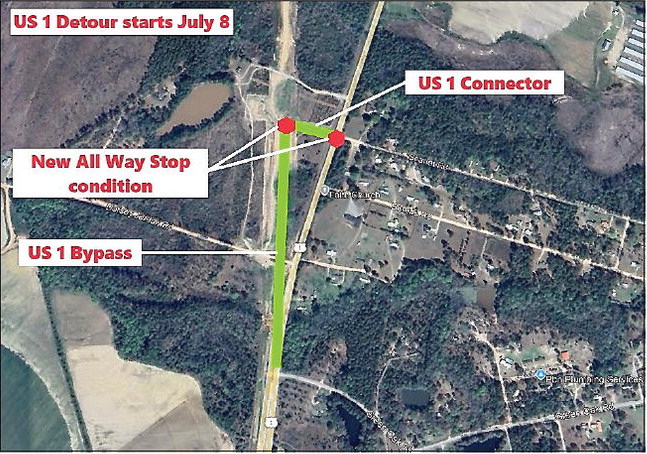Kemp signs transportation measures
Gov. Brian Kemp has signed two transportation bills that will allow heavier trucks to ply Georgia highways and pave the way for the widespread introduction of electric vehicles.
House Bill 189 will let commercial trucks exceed the current legal weight limit of 80,000 pounds by 10% on roads other than federal highways, which are subject to federal limits.
Commercial trucks had been hauling loads weighing up to 95,000 pounds since the pandemic struck Georgia more than three years ago, but an executive order Kemp issued in March 2020 to allow the heavier weights expired in March.
The 10% exemption letting trucks run with up to 88,000 pounds of cargo applies only to trucks hauling agricultural products – including livestock – and logs. During the pandemic, the farming, livestock and timber industries came to rely financially on the ability to transport heavier loads to reduce the number of trips.
The bill’s opponents warned that allowing heavier trucks permanently will pose a safety hazard and tear up the roads.
The legislation also allows the higher weight limits to apply only within a 150-mile radius of the farm or other point of origin of the cargo and prohibits heavier trucks from running inside metro Atlanta.
The bill sets penalties for violations that increase in several stages depending on how much a truck is exceeding the new legal weight limit.
While House Bill 189 takes effect immediately, the impact of the electric vehicles legislation won’t be felt for some time.
Senate Bill 146 changes the way motorists charging their EVs will pay for the electricity they buy from the current system, which is based on the length of time a customer uses an EV charger. Instead, they will pay by the kilowatt hour, a federal requirement Georgia must meet to be eligible for $135 million in federal funds earmarked by Congress to build a network of charging stations across the state.
The new law will continue imposing the flat annual registration fee of $216 EV owners have been paying, while adding an excise tax of 2.84 cents per kilowatt hour.
Those double taxes prompted complaints from the bill’s opponents that Georgians will be paying the highest taxes on EVs in the nation. Supporters argued the excise tax is necessary to capture tax revenue from out-of-state motorists traveling through Georgia.
Most of the bill’s provisions won’t take effect until the beginning of 2025 to give the state agriculture and revenue departments time to prepare. The agriculture department will handle the inspection and permitting of the new public EV charging stations, while the revenue agency will collect the taxes on EVs.





